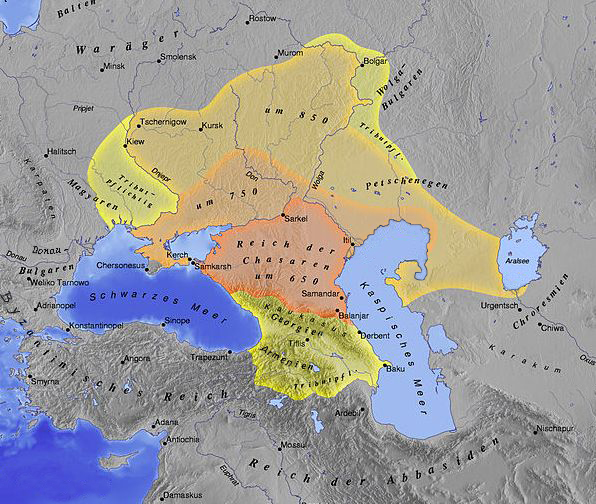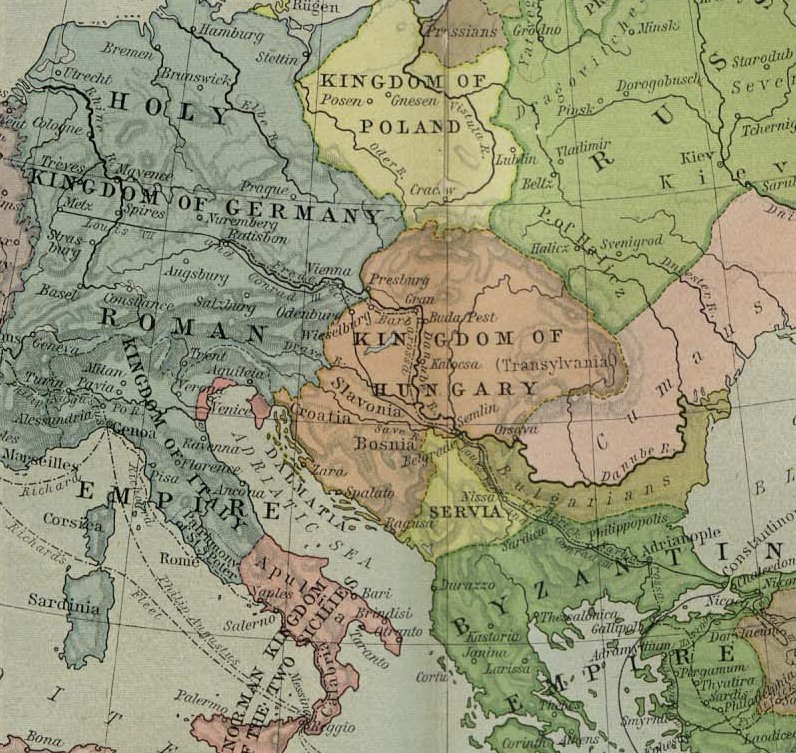|
Prince Of Tmutarakan
{{East-Slavic-hist-stub ...
The Prince of Tmutarakan was the ''kniaz'', the ruler or sub-ruler, of the Rus' Tmutarakan. List of princes of Tmutarakan * Mstislav of Chernigov, 988-1036 * Sviatoslav II of Kiev * Rostislav of Tmutarakan * Gleb Svyatoslavich * Volodar of Peremyshl * Oleg I of Chernigov, 1083-1094 Tmutarakan Tmutarakan ( rus, Тмутарака́нь, p=tmʊtərɐˈkanʲ, ; uk, Тмуторокань, Tmutorokan) was a medieval Kievan Rus' principality and trading town that controlled the Cimmerian Bosporus, the passage from the Black Sea to the Sea ... [...More Info...] [...Related Items...] OR: [Wikipedia] [Google] [Baidu] |
Kniaz
, or (Old Church Slavonic: Кнѧзь) is a historical Slavic title, used both as a royal and noble title in different times of history and different ancient Slavic lands. It is usually translated into English as prince or duke, depending on specific historical context and the potentially known Latin equivalents of the title for each bearer of the name. In Latin sources the title is usually translated as , but the word was originally derived from the common Germanic (king). The female form transliterated from Bulgarian and Russian is (), in Slovene and Serbo-Croatian (Serbian Cyrillic: ), ''kniahinia'' (княгіня) in Belarusian and ''kniazioŭna'' (князёўна) is the daughter of the prince, (княгиня) in Ukrainian. In Russian, the daughter of a knyaz is (). In Russian, the son of a knyaz is ( in its old form). The title is pronounced and written similarly in different European languages. In Serbo-Croatian and some West Slavic languages, the word ... [...More Info...] [...Related Items...] OR: [Wikipedia] [Google] [Baidu] |
Rus' People
The Rusʹ (Old East Slavic: Рѹсь; Belarusian language, Belarusian, Russian language, Russian, Rusyn language, Rusyn, and Ukrainian language, Ukrainian: Русь; Old Norse: ''Garðaríki, Garðar''; Greek language, Greek: Ῥῶς, ''Rhos'') were a people in Early Middle Ages, early medieval eastern Europe. The scholarly consensus holds that they were originally Norsemen, mainly originating from present-day Sweden, who settled and ruled along Trade route from the Varangians to the Greeks, the river-routes between the Baltic and the Black Seas from around the 8th to 11th centuries AD. In the 9th century, they formed the state of Kievan Rusʹ, where the ruling Norsemen along with local Finnic peoples, Finnic tribes gradually assimilated into the East Slavs, East Slavic population, with Old East Slavic becoming the common spoken language. Old Norse language, Old Norse remained familiar to the elite until their complete assimilation by the second half of the 11th century, and i ... [...More Info...] [...Related Items...] OR: [Wikipedia] [Google] [Baidu] |
Tmutarakan
Tmutarakan ( rus, Тмутарака́нь, p=tmʊtərɐˈkanʲ, ; uk, Тмуторокань, Tmutorokan) was a medieval Kievan Rus' principality and trading town that controlled the Cimmerian Bosporus, the passage from the Black Sea to the Sea of Azov, between the late 10th and 11th centuries. Its site was the ancient Greek colony of Hermonassa ( grc, Ἑρμώνασσα) founded in the mid 6th century BCE, by Mytilene (Lesbos), situated on the Taman peninsula, in the present-day Krasnodar Krai of Russia, roughly opposite Kerch. The Khazar fortress of Tamantarkhan (from which the Byzantine name for the city, Tamatarcha, is derived) was built on the site in the 7th century, and became known as Tmutarakan when it came under Kievan Rus control. History The Greek colony of Hermonassa was located a few miles west of Phanagoria and Panticapaeum, major trade centers for what was to become the Bosporan Kingdom. The city was founded in the mid-6th century BCE by Mytilene (Lesbos), al ... [...More Info...] [...Related Items...] OR: [Wikipedia] [Google] [Baidu] |
Mstislav Of Chernigov
Mstislav Vladimirovich (; ; ) was the earliest attested prince of Tmutarakan and Chernigov in Kievan Rus'. He was a younger son of Vladimir the Great, Grand Prince of Kiev. His father appointed him to rule Tmutarakan, an important fortress by the Strait of Kerch, in or after 988. He invaded the core territories of Kievan Rus', which were ruled by his brother, Yaroslav the Wise, in 1024. Although Mstislav could not take Kiev, he forced the East Slavic tribes dwelling to the east of the Dniester River to accept his suzerainty. Yaroslav the Wise also accepted the division of Kievan Rus' along the river after Mstislav had defeated him in a battle fought at Listven by Chernigov (presents-day Chernihiv, Ukraine). Mstislav transferred his seat to the latter town, and became the first ruler of the principality emerging around it. Early years Mstislav was one of the many sons of Vladimir the Great, Grand Prince of Kiev. His exact position in Vladimir's family is disputed, because Vlad ... [...More Info...] [...Related Items...] OR: [Wikipedia] [Google] [Baidu] |
Sviatoslav II Of Kiev
Sviatoslav II Iaroslavich or Sviatoslav II Yaroslavich ( orv, Ст҃ославь Ӕрославичь; Russian and Ukrainian: Святослав Ярославич; 1027 – 27 December 1076) was Grand Prince of Kiev between 1073 and 1076. He was born as a younger son of Grand Prince Yaroslav the Wise. His baptismal name was Nicholas. He ruled the Principality of Vladimir in Volhynia in his father's lifetime (from around 1040 to 1054). Yaroslav the Wise, who divided the Kievan Rus' among his five sons in his testament, willed the Principality of Chernigov to Sviatoslav. Sviatoslav joined his brothers, Iziaslav of Kiev and Vsevolod of Pereyaslav, in forming a princely "triumvirate" that oversaw the affairs of Kievan Rus' until 1072. The three brothers together fought against their enemies, including the nomadic Oghuz Turks, and their distant relative, Prince Vseslav of Polotsk. The Cumans defeated their united force in the autumn of 1068, but Sviatoslav routed a Cuman band ... [...More Info...] [...Related Items...] OR: [Wikipedia] [Google] [Baidu] |
Rostislav Of Tmutarakan
Rostislav Vladimirovich (, , ; died 1066) was a landless prince (''izgoi'') from the Rurikid dynasty of Kievan Rus’. He was baptized as Mikhail. According to the Russian genealogist Nikolai Baumgarten, the mother of Rostislav was Oda of Stade, a daughter of the Stade Count Leopold. That claim is also supported by other historians. At his younger age, Rostyslav ruled Rostov in the land of the Merya. His father Vladimir of Novgorod was the eldest son of Yaroslav I of Kiev. If Vladimir had not predeceased his father, he would have succeeded to the Kievan throne. Under the East Slavic house law, the early death of Rostislav's father made his descendants forfeit all claims to Kiev. For five years after his father's death, Rostislav who was about 14 years old had no appanage. Finally, his uncles gave him Volhynia and Halych, where he stayed from 1057 and 1064, guarding the western frontier of the Rus' lands. According to Vasily Tatischev, it was there that he married Anna Lanke, t ... [...More Info...] [...Related Items...] OR: [Wikipedia] [Google] [Baidu] |
Gleb Svyatoslavich
Gleb Svyatoslavich ( 1052 – 30 May 1078) was Prince of Tmutarakan and Novgorod of Kievan Rus'. He ruled Tmutarakan under the overall authority of his father Sviatoslav Iaroslavich, Prince of Chernigov. He was twice expelled from his principality by one of his cousins Rostislav Vladimirovich. His father appointed him prince of Novgorod in 1067 or 1068. He suppressed a rebellion incited by a sorcerer against the bishop of the town. Later he was expelled from Novgorod and was killed by the Chudes. The ''Russian Primary Chronicle'' writes that he "was kindly toward the poor and hospitable to strangers, zealous toward the church, warm in faith, peaceful, and fair in appearance". Early life Gleb was the eldest of the fours sons of Sviatoslav Iaroslavich, Prince of Chernigov by his first wife, Killikiya. According to historian Martin Dimnik, Gleb was born around 1049. He was named after his father's holy uncle, Gleb. His father appointed him to rule Tmutarakan, an important por ... [...More Info...] [...Related Items...] OR: [Wikipedia] [Google] [Baidu] |
Volodar Of Peremyshl
Volodar Rostyslavych, ''Volodar Rostislavich'' () (died 1124) was Prince of Zvenyhorod (1085–92) and Peremyshl' (1092–97). He actively was involved in the Polish internal affairs. Volodar also waged a war against the Grand Prince of Kiev Sviatopolk II of Kiev and his son Yaroslav. In 1121 Volodar was imprisoned in Poland, but was bonded out by his brother Vasylko Rostyslavych. Together with Vasylko participated at the federal council in Liubech in 1097 (see Council of Liubech). His father was Rostislav of Tmutarakan; his son was Volodymyrko of Halych, father of Yaroslav Osmomysl. Today there is confusion between two localities of former Zvenyhorod city, one being located in Lviv Raion in Lviv Oblast and another in Chortkiv Raion in Ternopil Oblast. The map on the left shows one east of Halych (pol. ''Halicz''), which is one in the Ternopil Oblast, while the official Ukrainian historiography claims the one near Lviv, which would be located north of Halych. Military c ... [...More Info...] [...Related Items...] OR: [Wikipedia] [Google] [Baidu] |
Oleg I Of Chernigov
Oleg Svyatoslavich (russian: Олег Святославич; 1052 – August 1115) was a Rurikid prince whose equivocal adventures ignited political unrest in Kievan Rus' at the turn of the 11th and 12th centuries. Oleg was a younger son of Sviatoslav Iaroslavich, Prince of Chernigov and his first wife, Killikiya. He might have been either the second or the fourth among the four sons of Sviatoslav Iaroslavich by Killikiya, because their order of seniority is uncertain. According to historian Martin Dimnik, Oleg was born around 1050. Oleg was named after his grand uncle. His baptismal name was Michael. Dimnik writes that "it is highly probable" that Oleg succeeded his brother, Gleb in Tmutarakan after their father appointed the latter Prince of Novgorod in about 1068. Oleg's father and uncle, Vsevolod Iaroslavich made an alliance against their elder brother, Iziaslav Iaroslavich, Grand Prince of Kiev and dethroned him on 22 March 1073. According to Dimnik, Oleg received ... [...More Info...] [...Related Items...] OR: [Wikipedia] [Google] [Baidu] |



.jpg)
